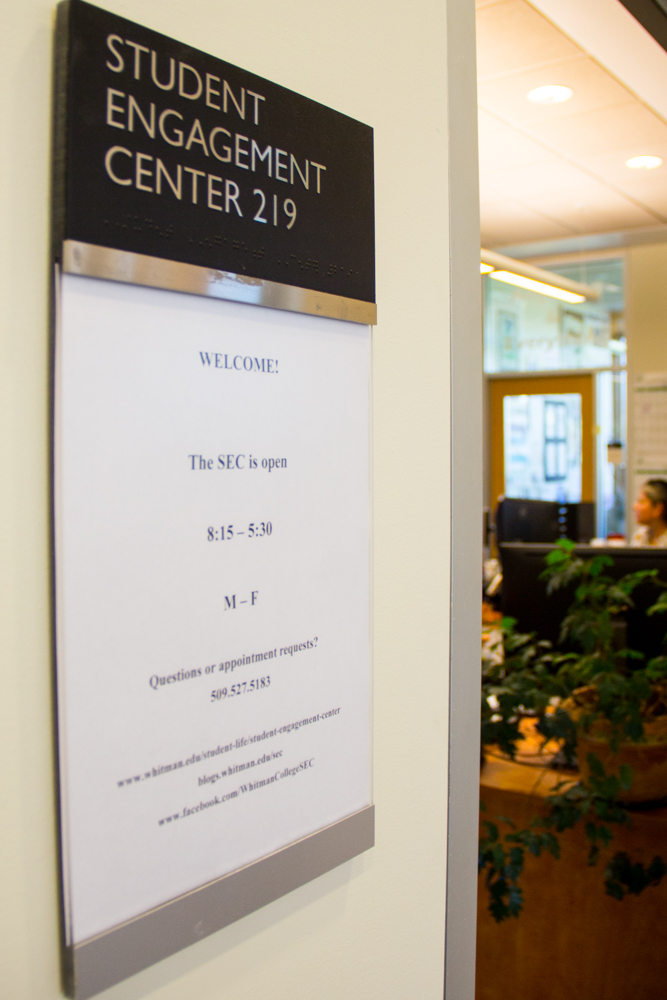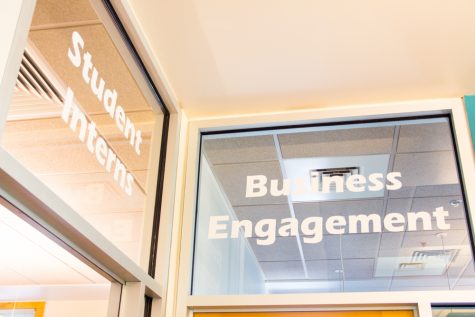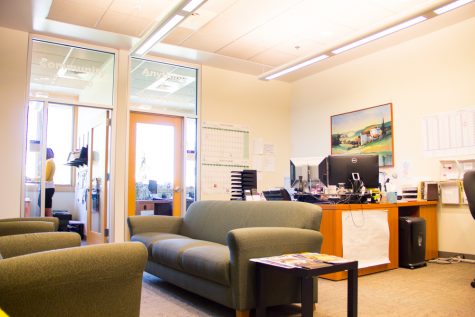Faculty-focused SEC Shift
October 2, 2017
In response to the new Strategic Priorities document, the Student Engagement Center has moved from the Dean of Students’ office to the Dean of Faculty’s office. The move into the Provost’s office under the Dean of Faculty Alzada Tipton will not have a dramatic impact on the SEC’s day to day activities. It was not accompanied by a change in the size of the SEC’s budget or changes in personnel, and the members of the SEC are still considered staff, not faculty. It is however significant due to the fact that the Provost is the Dean of the Faculty; signaling the integration of the SEC into Whitman’s curriculum.

Noah Leavitt, head of the SEC, said the move was made “to try and make the resources and expertise that exists within the SEC more available to the academic program than it had been in the past when it was under the Dean of Students’ office.”
Members of the SEC now attend the meetings of department and interdisciplinary chairs in order to offer alumni and community resources to faculty who want to involve guest alumni speakers or promote community based learning within their departments and classes.
Mr. Leavitt said the only difference in the day to day work of the SEC after the transfer is “a lot more interaction with faculty members, faculty members coming to [the SEC] with ideas that they want to get feedback on … and that’s been great.” The SEC maintains many connections with community partners that faculty may not be aware of, and by partnering more closely, the SEC is able to draw upon existing connections to help facilitate community based learning.

Provost Tipton also emphasized the flip side of supporting faculty in community outreach: Whitman’s obligation to the community and the need for a steady presence and contact at Whitman for community members and organizations. When professors create a partnership with Walla Walla programs, they are the only ones maintaining that connection, and if that professor leaves or changes focus, those partnerships are often abandoned.
By partnering more closely with the SEC, Dr. Tipton hopes that the more methodical and formal connection to Whitman through the SEC will offer community partners a reliable contact over many years and alleviate the pressure on professors to create and maintain these partnerships on their own.
The SEC’s mission statement reads: “We connect Whitman students and alumni to the communities and experiences that help them cultivate their futures.” On the SEC website, they advertise advising appointments with four focuses: community service, internships, career and networking and recruiting. The mission and advising options seem focused on helping students after Whitman, but the shift into the Provost’s office seems to expand the SEC’s role into the academic side of the college. This can be contextualized with the new Strategic Priorities document; two tenets stand out and seem to influence this move.
Tenet three, Innovating the curriculum, emphasizes “the challenges and opportunities of the twenty-first century … we [Whitman] reaffirm our commitment to the liberal arts and dedicate ourselves to shaping a dynamic curriculum that can respond to these needs.”

Tenet four, Connecting to life after Whitman, promises every student “the opportunity to participate in high-impact learning experiences, robust advising, strong co-curricular programs and a rich extracurricular life,” as well as “the support of Whitman’s robust alumni network through multiple programs and avenues” that will help them “translate their Whitman education into a compelling narrative for their future.”
Framed within the context of tenet three of the new Strategic Priorities document and the promise to craft a dynamic curriculum that responds to the challenges of the 21st century, and the fourth tenet which promises to provide opportunities to engage in high-impact learning experiences and strong co-curriculars, the SEC’s move into the academic side of Whitman makes sense. Walla Walla offers many opportunities and perspectives that are hard or impossible to find on campus proper. By expanding our classrooms into the community, students have the chance to engage with different people and ideas in high-impact learning experiences, community partnerships offer strong co-curriculars and insight into how people are addressing the unique challenges of the 21st century.






Reader • Oct 5, 2017 at 1:09 pm
A “faculty-focused” SEC shift without the faculty? So telling. The article contains no voice from among the faculty, a perfect metaphor for their lack of faculty involvement in (a) the creation of the SEC (b) the moving of the SEC to the Provost’s office which has curricular implications that are [still] faculty domain [for now]. The Wire has just regurgitated PR points from Memorial in this article. rather than examined the issue critically.